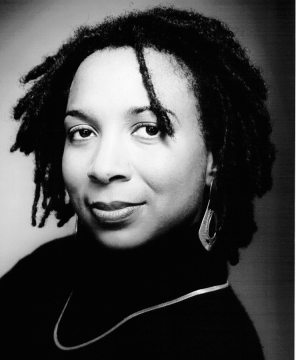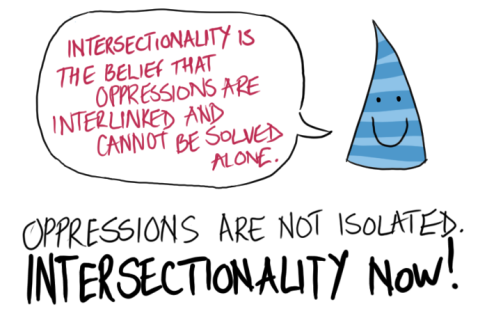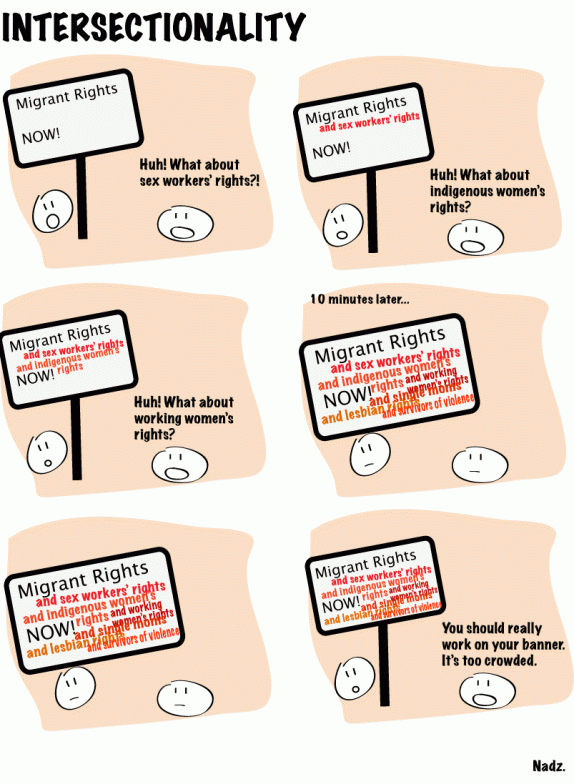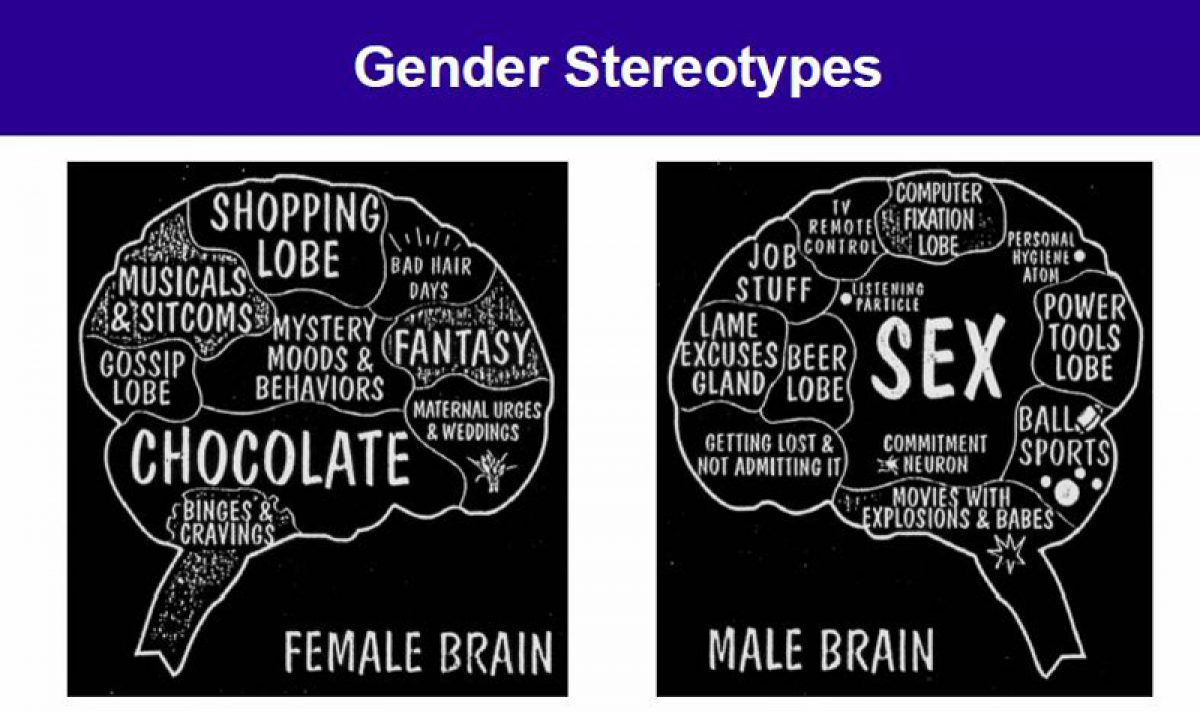
In “Mapping the Margins” Kimberlé Crenshaw introduced the idea that different types of discrimination interact with each other, it seems that she is building on the ideas of Bell Hooks who said that the feminist movement dismissed “race and class as factors that, in conjunction with sexism, determine the extent to which an individual will be discriminated against, exploited, or oppressed.” Specifically, in the portion of the essay that I have read, Crenshaw focuses on rape and violence against women at the intersection of gender and race. She states that women of color are most vulnerable to sexual violence

Crenshaw criticizes the Violence Against Women Act of 1991, which focuses on the issue of sexual violence in the dominant community, and this strategy allows for white victims to come into focus, and the experience of violence by the minority groups is ignored.
Crenshaw also criticizes social sciences for failing to address and understand the issue from the intersectional perspective: “The marginalization of Black women’s experiences within the anti-racist and feminist critiques of rape law are facilitated by social science studies that fail to examine the ways in which racism and sexism converge”.
Here is a recent talk (from 2016) by Crenshaw on intersectionality. Her original essay was published in 1991, and the issues she described then are still very relevant today
One potential problem, or rather an omission, that I saw in the middle 20 pages that I’ve read is that Crenshaw focuses on women of color and ignores other groups of women that also experience sexual violence – for example, immigrant groups, religious minorities, and queer women. I think that these groups are subjected to the same type of violence Crenshaw describes. She does mention “other identity categories” but she does not go into the details on what these categories are, at least not in the portion of the essay that I’ve read.




The Crenshaw reading had really left me thinking. I think it was mostly because that i was always aware of the racism that was present and many can argue is still present when dealing with the law however reading some of the examples and the things that were associated with women of color for rape and sexual assault cases were infuriating. I remember i was on the train reading with my forehead furrowed. I personally felt disgusted that people can make such assumptions about women especially on women who have just experience such trauma not only was their justice taken away from them they also had to face humiliation. It was very upsetting for me to read this not because i did not like the reading but because of the injustice that women had to and i believe still face simply because they are from a different race; because they are not white so therefore whatever trauma that they have endured was due to the fact that they probably asked for it and or encouraged it, my eyes cannot possible roll any further back into my head. I wish such things weren’t true but unfortunately they are true however every time i read such things i become shocked because there’s a part of me that believes that there will be a time where this wont be the case. That justice will not be held back from a woman based off her race.
LikeLike
Like both of you, I also read the middle 20 pages and I was just as upset by it. I wasn’t surprised, however, to see in writing what I think most people already know. Black women, like Crenshaw states, have been used as sex symbols in the media, shown as fiery and promiscuous, and even more often mere objects used for singular purposes and then tossed away. For rape laws to truly do service to all women, the racist and sexist ideas held by society must be put in the past. Like Crenshaw says, “The racism and sexism written into the social construction of rape are merely contemporary manifestations of rape narratives emanating from a historical period when race and sex hierarchies were more explicitly policed.”
The video we watched in class about Beyonce talked about ‘respectability politics’, which I think had Crenshaw known this term at the time of her writing she would have talked about in regard to racism and rape laws. Black people have always been told that to be accepted into society they must act in accordance with white, middle class, Christian values. Women have also had their behavior policed in this way by society, we’ve been told how to dress, speak, act, eat, and everything in between, in order to be accepted as a ‘lady’. The issue with these respectability politics in regards to black women is that they have often been pre-judged as being more sexual beings than other women, regardless of anything besides their skin color. As Crenshaw says, “…Black women are essentially pre-packaged as bad women within cultural narratives about good women who can be raped and bad women cannot.” I agree with Crenshaw when she says social sciences haven’t focused much on the intersection of racism and sexism, and that intersectionality should be an essential part of feminism. I think the real question should be can white women recognize their privilege enough to step up and use that privilege to change the racism that black rape victims face in regard to the law?
LikeLike
Crenshaw presents a powerful that I can say we were all touched by to a certain degree. While Crenshaw does not touch greatly upon other race/gender discriminations, she uses her platform to highlight an evident issue within the topic of intersectionality in regards to black women. It is with no question black women face a disadvantage in society, pushed not only by white men, but black men as well. The are always second or third in the unjust hierarchal system imbedded into our world. Crenshaw’s passionate argument and highlighting of this type of women reminds me of a similar reading that crosses the same issue. Frances Beal writes in her pamphlet, “Double Jeopardy: To Be Black and Female”, the struggle that plagues black women in terms of misconceptions and troubles. She writes how black women’s labor is specifically exploited and the topic of bedroom politics regarding surgical genocide.
Based on these readings, it is clear that black women do face a unique experience that is more intense than white women’s struggle. In order for women to ever advocate and produce significant change in their gender–they must realize the oppression faced by the intersectionality of black women. By excluding or ignoring their particular exploitation–we would never come to see an absolute justice for the liberation of women or advancement in society. We must treat the narrative of sexual violence in the same tone for white and black women. Crenshaw states ” the location of women of color at the intersection of race and gender makes our actual experience of domestic violence, rape, and remedial reform qualitatively different than that of white women.” This rhetoric must be changed, and in order for change, we must accept that the difference in the way we consider black women is significantly different than their white counterparts–and should not be tolerated in this way anymore!
LikeLike